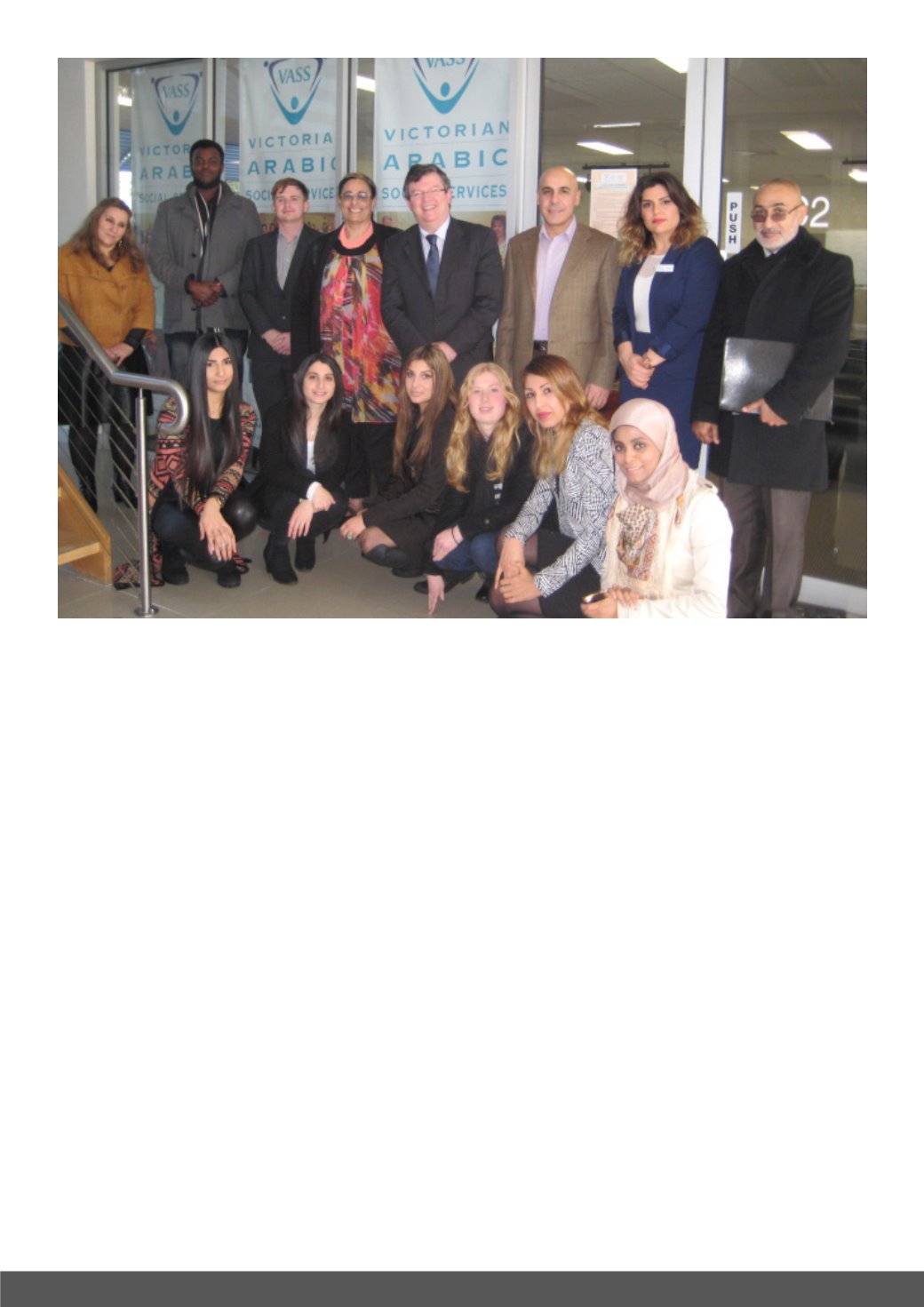

161
“One of the key things I’ve learnt is
that no community in Australia will suc-
ceed when living in isolation from other
communities. I’ve learnt to build bridg-
es between them and develop strate-
gies with all communities across di-
verse factors. Everyone is responsible
for building peace and no one should
say, ‘That’s not my role’. I believe that
we should all stand firmly for social jus-
tice and that everyone can do some-
thing, no matter where they are. Within
their family role, their community role,
their parent role, they can all contribute
something as long as they have the prin-
ciples and the values of social justice to
their hearts and minds”, she says.
After all, one of the things that makes
her work in the community so success-
ful is that she tends to generate a lot
of support for her ideas and her mis-
sion. The community, along with a host
of volunteers, have been instrumental
to the organisation, their services, and
their projects. Leila has received a lot
of community support. They have man-
aged to achieve great results in building
peaceful communities, educational and
women’s services, and a host of other
activities that have benefited all of the
communities involved with the organi-
sation. Like Leila says, “social justice is
the responsibility of everyone”.
The driving force of
multiculturalism
Over the years, multiculturalism has
been a major driving force for both Lei-


















